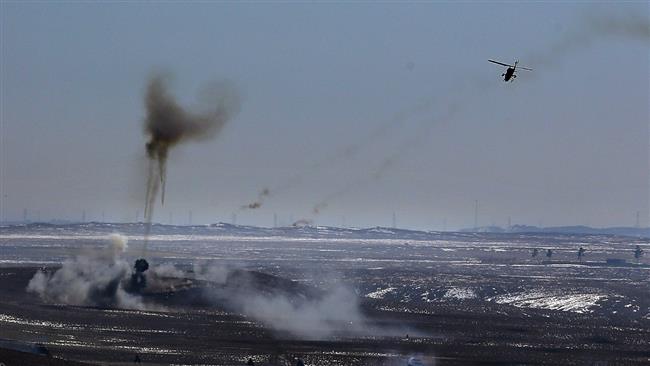
RNA - The mine named Sa’eqeh (thunderbolt) was successfully put to test during the Payambar-e-A’azam (Great Prophet) 11 drills in Taybad County of the northeastern province of Khorasan Razavi.
Sa’eqeh has been designed and manufactured by Iranian experts with the aim of enhancing deterrence against potential airborne intrusion.
The remote-controlled anti-helicopter mine, which contains several explosive projectiles, is planted on the ground to target intruding flying objects up to an altitude of 500 meters.
Following the explosion of the mine’s main part, the small projectile bombs will then fly and explode in a vertical line, enabling them to destroy the target or inflict serious damage on it.
The mine does not need separate radar systems to detect the intruding flying object.
This is the third generation of Iran’s domestically-manufactured anti-chopper mines after J-AHM and Sayyad models.
Sa’eqeh was tested during the final stage of Payambar-e-A’azam 11 drills on Wednesday, when the IRGC’s Saberin Special Forces Brigade struck mock enemy positions and vehicles.
The operation was being backed by the Corps’ rocket fire units, which launched state-of-the-art and precision-guided projectiles at designated targets.
The IRGC’s T-72 tank units, Boraq personnel carriers (the modified Iranian version of Russian BMP-1 fighting vehicles) and BMP-2 armored vehicles were also used in the maneuvers.
The first stage of the maneuvers similarly witnessed defensive operations using smart rockets and surgical attacks, while the Force practiced defending residential areas during simulated urban warfare in the second phase.
Iran says its military might is defensive in nature and poses no threat to any other country.
847/940